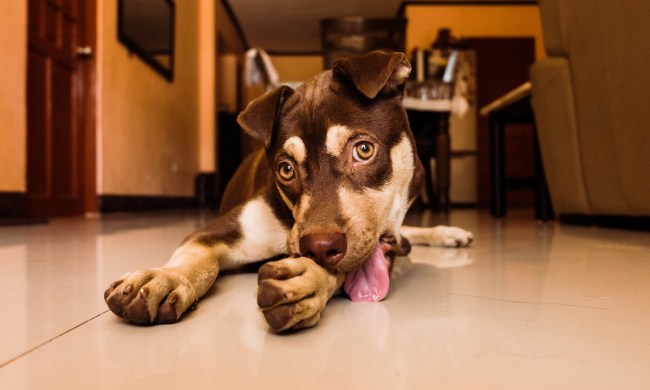
Dogs may suffer from upset stomachs, irregular digestive motility, and weak immune systems. Luckily, probiotics for dogs solve all of these issues and more, including skin problems and joint pain, depending on the brand. We’ve looked into the top probiotic canine supplements here to help you discover the right one for your fur baby.
Dogs’ probiotics contain live bacteria cultures that help their digestive and immune system function well. This means probiotics aren’t just for rumbly stomachs, but for dogs with allergies or senior dogs who may need more protection against sickness.
Most probiotics come in chewable forms dogs are familiar with, so they’re often packed with fiber for more digestive support. Other probiotics are available as a powder you can sprinkle onto your pet’s bowl with their regular food, and this is best for dogs with a particular taste or dogs that have weaker jaws. Let’s get down to business and see which probiotics are best for your pet.
Purina Pro Plan Probiotics Dog Supplement
Best Overall

Purina’s probiotics supplement is the best overall choice recommended by professional veterinarians for dogs of all ages. It’s ideal for treating diarrhea through a probiotic that helps reset your pet’s intestinal microbiome. A daily powder packet makes it easy to keep track of doses and to administer to pets.
Zesty Paws Probiotics For Dogs
Best for Stomach

Zesty Paws’ supplement is best for promoting stomach health by providing relief for common issues like bloating, loose stool, indigestion, and general stomach irritation. It contains 3 billion colony-forming units of healthy gut bacteria, which is plenty enough to bolster immune systems and fight allergies.
Amazing Nutritionals Probiotics For Dogs
Best for Hip Joint

The Amazing Nutritionals supplement is the best choice for hip joint pain, so your senior dog or pet with bone issues can find some relief. Nutritious ingredients like probiotics, yeast, and chondroitin also promote healthy skin, fur, and digestion.
Probiotics for dogs are your pet’s best defense against upset tummies, undeveloped immune systems, and chronic allergies. Some brands even offer joint pain relief and skin and hair growth support all in a little chewable tablet. No matter which supplement you choose from our list, you’ll notice a big difference in your dog’s digestive and immune system, thanks to an effective probiotics formula proven to keep your dog in top shape.


